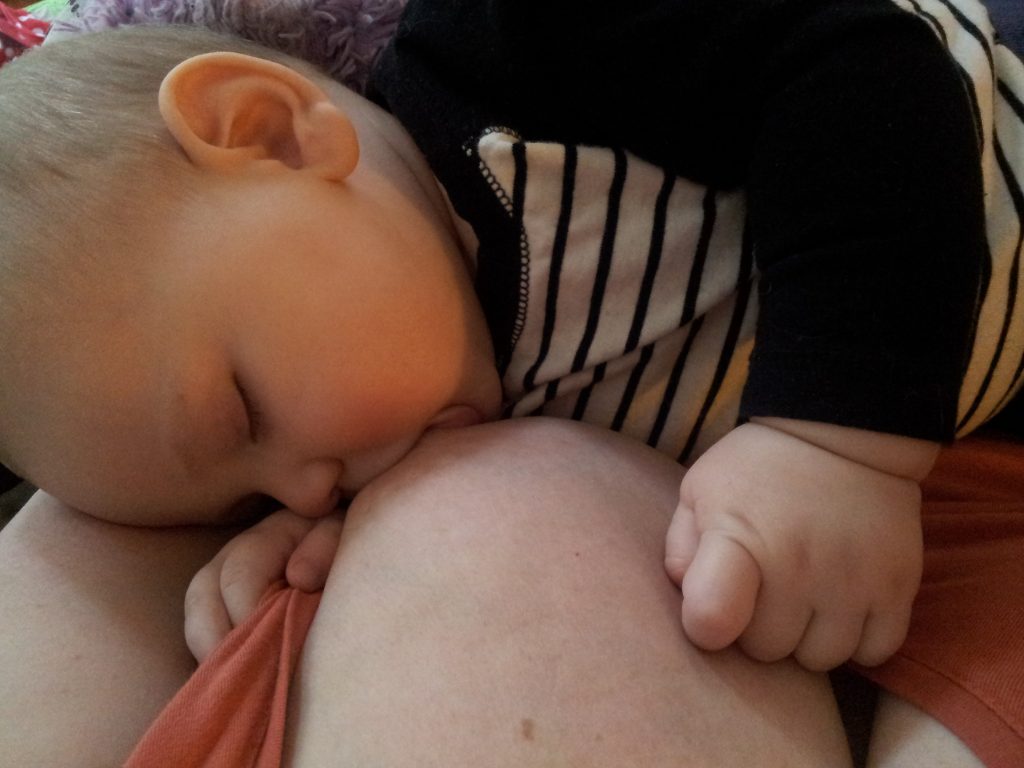Dr. Samantha Radford is a chemist with expertise in Public Health. She focuses on how mothers and babies are exposed to chemicals, and what the effects of those chemicals are. In addition, Samantha owns Evidence-based Mommy, where she helps mothers and their kids to thrive using science and wellness. Samantha has four children of her own.
Is Zoloft safe for breastfeeding?
Whether you’ve dealt with mental health challenges in the past, or it’s a new experience for you due to postpartum hormone changes, anxiety and depression can be debilitating for a new mom. And while there’s several ways to help with PPA or PPD, one of the most common remedies is to prescribe Zoloft (sertraline).
If you’re in the States, you probably know just how lacking postpartum care is here. You get a check-up at 6 weeks and may be given a ten question survey assessing for depression or anxiety, and that’s it.
Unfortunately, many moms think (or they’re even told by their providers) that if they start an antidepressant such as Zoloft that they need to wean their child. So then, moms feel torn: They know breastfeeding is important for their child’s health (and their own health), but they also want (and need) to feel better.
If you’re in a similar position and looking for answers, the good news is that Zoloft is not incompatible with breastfeeding. If you want more details, read on to learn about Zoloft’s impact on your nursling’s health and on your milk supply.

How Zoloft works
Your brain uses many different signal molecules to regulate your emotions. One of the most important chemicals in regulating your mood and feeling of well-being is serotonin. If you have too little serotonin, you may feel stress, depression, or anxiety.
Zoloft is a selective serotonin reuptake inhibitor (SSRI). Basically, it blocks reuptake (removal) of serotonin from your brain. When there’s more serotonin around, it can help regulate your mood.
How breastfeeding lowers risk of postpartum depression
Serotonin isn’t the other neurochemical involved in mood. Another major player is oxytocin, the “love hormone.” Oxytocin reduces stress and increases feelings of trust and relaxation. You definitely want it swimming around your brain.
And one of the best sources of oxytocin for new moms is breastfeeding. In fact, when your baby suckles, it causes a release of oxytocin, which in turn signals the milk ejection reflex (or “letdown”).
Because of the link between oxytocin and nursing (not to mention prolactin, estrogen, and other hormones), quitting breastfeeding can actually cause more upheaval with your mood. For this reason, exclusive breastfeeding decreases the risk of PPD.
Zoloft and milk supply
So if breastfeeding helps mood, it would be ideal if taking Zoloft is compatible with breastfeeding.
Your first concern may be whether Zoloft affects milk supply. Fortunately, this doesn’t seem to be the case.
While a few moms have had a delayed onset (by less than a day) of their milk “coming in,” Zoloft doesn’t decrease overall milk supply. So if you’re starting an SSRI after your supply is already established, this shouldn’t be an issue.
Does Zoloft pass through breast milk
A bigger concern for many moms, though, is whether Zoloft passes through their milk to their baby. After all, a baby’s brain and nervous system is under serious development, so any small damage at an early stage can have life-long effects.
The short answer is that, yes, Zoloft can be found in breastmilk. However, the levels of this chemicals in breast milk is extremely low, partially because it breaks down so quickly (in fact, up until a few years ago, it was assumed that Zoloft didn’t pass through milk at all).
Researchers have found that, once you add up all the feeds a baby does over the course of the day, less than 1% of the mother’s sertraline dose is passed to baby.
Of course, even a small amount of a chemical can have a profound effect on an infant, but to date, no negative long-term impacts have been found on people who were breastfeed while their mother took Zoloft. With that said, there certainly need to be more studies of the long-term impact of Zoloft exposure during infancy.
However, there have been plenty of studies on a less obvious “toxin” for infants – the long-term effects of maternal stress, depression, and anxiety.
When you’re depressed or anxious, you may be less responsive to your children’s needs, or you may be more irritable or snappy. You also have a harder time modeling problem solving and emotional regulation for your kids (all of this isn’t to say that you’re a bad parent just because you have depression or anxiety. It just means you have to work harder as a mom. No judgement).
Bottom line: While there’s no evidence that Zoloft exposure through breastfeeding can cause long-term effects on children, there is substantial evidence that maternal stress and anxiety can cause long-term cognitive, social, and emotional effects on children, even into adulthood. Therefore, it is better for your child (and yourself) to do something about your depression and anxiety, and if medication is the right choice for you, then that’s okay.
Other ways to help with PPA or PPD
Of course, medication is not the only treatment option for postpartum depression or anxiety.
Going to therapy can be very helpful for dealing with the transition to motherhood (or just to having a new baby). In fact, studies show that combining therapy with an SSRI is more effective than medication alone, because your brain gets a break while you’re learning new coping skills.
Many moms find some relief by taking a magnesium supplement, either orally (be sure to choose chelated magnesium as it’s absorbed best), or through the skin with magnesium oil.
And of course, all the other basic self-care – drinking plenty of water, eating a nutritious variety of foods, and light exercise (or at least getting outside for fresh air!) makes a big difference in how you feel.
Conclusions on Zoloft and breastfeeding
If you’ve been prescribed Zoloft during your postpartum months, you don’t have to worry about it ending your breastfeeding relationship with your little one. Do what you need to so you can take care of yourself and your baby.












